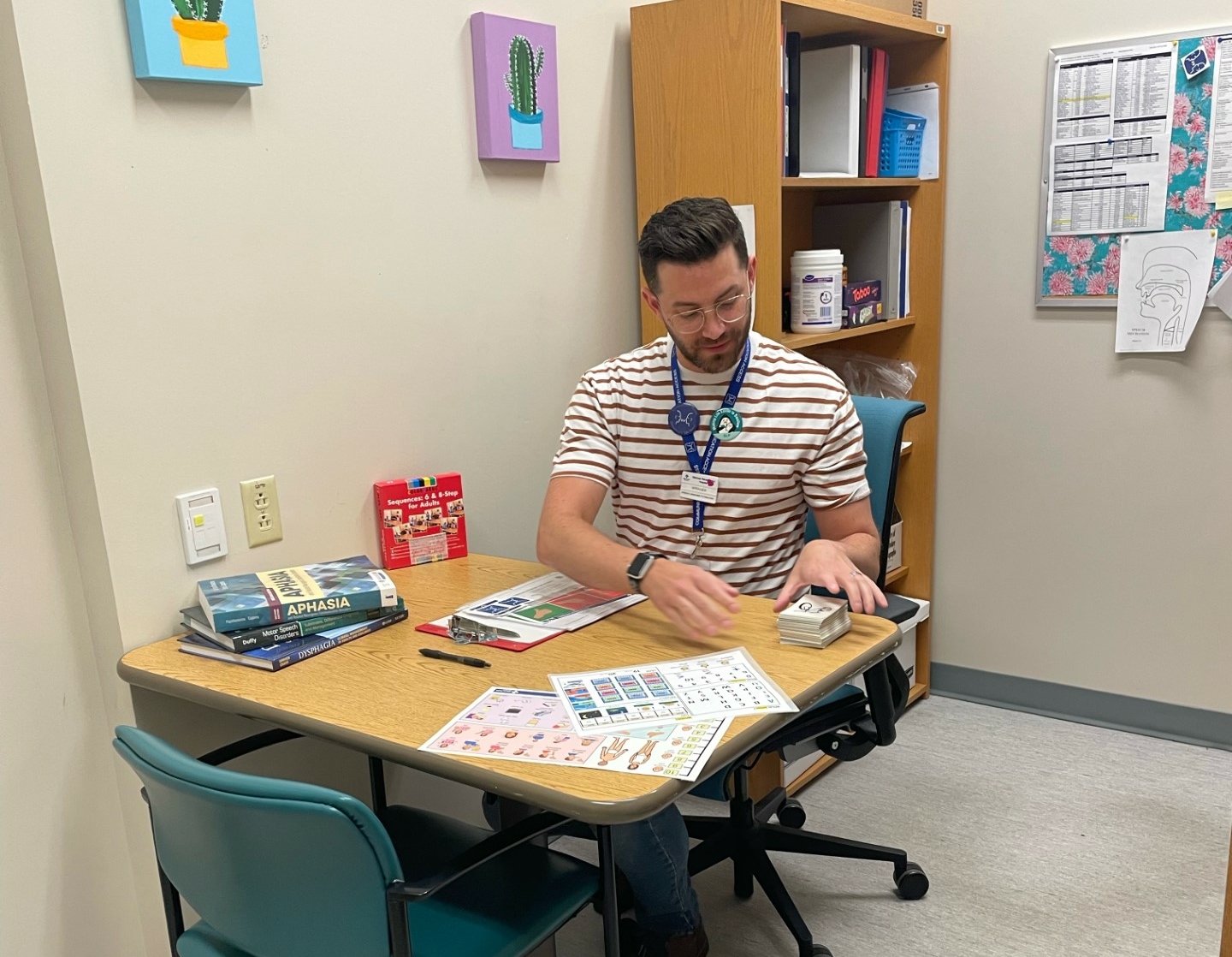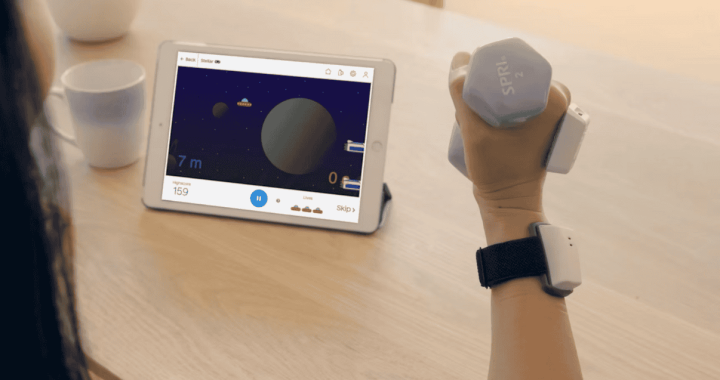May is Speech and Hearing Month in Canada. There are many professionals at the Glenrose who support patients to achieve their speech and hearing goals. Below, Spenser answers questions about his role as a Speech-Language Pathologist (SLP), and how it integrates with the complex, comprehensive care at the Glenrose Hospital.
What does an SLP typically do?
An SLP’s role is quite broad and we can work with anybody across the age spectrum, all the way from birth to end of life. We look at speech in terms of motor movement, working with the actual musculature, and language. We get to work with folks after a variety of things like stroke or brain injury. Some individuals used to have language, and now they don’t, maybe they knew multiple languages where one has been affected and the other one hasn’t. We work with many patients in many different scenarios.
We also get to work with Augmentative and Alternative Communication (AAC) which can be low tech, like a communication board or something more advanced like an iPad. The Glenrose has many AAC devices which is really exciting!
What is your role at the Glenrose?
I graduated last June, and I was a student clinician for my final external placement at the Glenrose. Now, I work with inpatient adults as a speech-language pathologist on the brain injury and the musculoskeletal units. I work with people who have gone through their acute phase – they’ve had a stroke, they’ve gone into hospital, they’ve had emergency surgery — and they’ve shown the ability to make progress to be able to engage in rehabilitation. That’s when they come to the Glenrose, and I get to work with them!
Some patients have feeding and swallowing needs, so we get to do meal observations to make sure everything’s moving properly, their tongue is strong enough, and their swallow looks okay. If something isn’t quite right, we send patients for swallowing x-rays and walk through the results with them which is very interesting.
What do you wish people knew about your role?
The broadness of the role as an SLP and that it exists! Many people are not aware of what we can do to help. If something happens to an individual’s language, if they can no longer put sentences together, that doesn’t mean that they’re not intelligent or that they’re not themselves anymore. They are still the same person that you knew, we just have to figure out a different way to help them communicate.
What is unique about being an SLP at the Glenrose Rehabilitation Hospital?
One unique thing about being an SLP at the Glenrose is the ability for us to do the treatment itself. In a lot of acute care settings, SLPs mostly focus on feeding and swallowing because that’s where health issues can arise, like aspiration pneumonia and other complications. In acute care settings you don’t see a lot of communication assessments or communication treatment being done whereas, at the Glenrose, I get to go in and create relationships and work with families and our interdisciplinary team to accomplish patient goals.
It’s also unique because we have access to the I CAN Centre and a lot of cutting-edge technology and equipment at the Glenrose. The equipment is there for us to trial and use with patients which I don’t think you can get in other settings.
What is the most challenging part about your job?
The biggest challenge, that we’re seeing across healthcare right now, is the sheer amount of work. We have up to nine communication patients in a day and we see them for up to an hour each. In addition to appointments, we have all the paperwork and everything else that goes along with it.
The biggest clinical challenge that tends to arise in patients on the brain injury unit is when they lose what we call, insight, where they don’t really know where their deficits are. Those are the most challenging situations because as SLPs we are able to see the deficits and the family is able to see them, but the patient isn’t. As SLPs we are faced with trying to get our patients to understand what it is that they need to work on during rehabilitation while building a positive relationship with them.
What is your favourite part about being an SLP at the Glenrose?
I get to go in and I get to have meaningful conversations with people all day. Regardless of where a patient is in their journey, I get to have conversations about the things that are important to them. I get to create great relationships and help patients work towards their goals.
Interested in learning more about speech and language programs at the Glenrose Hospital? Read this interview with Sarah, a speech-language pathology assistant.

